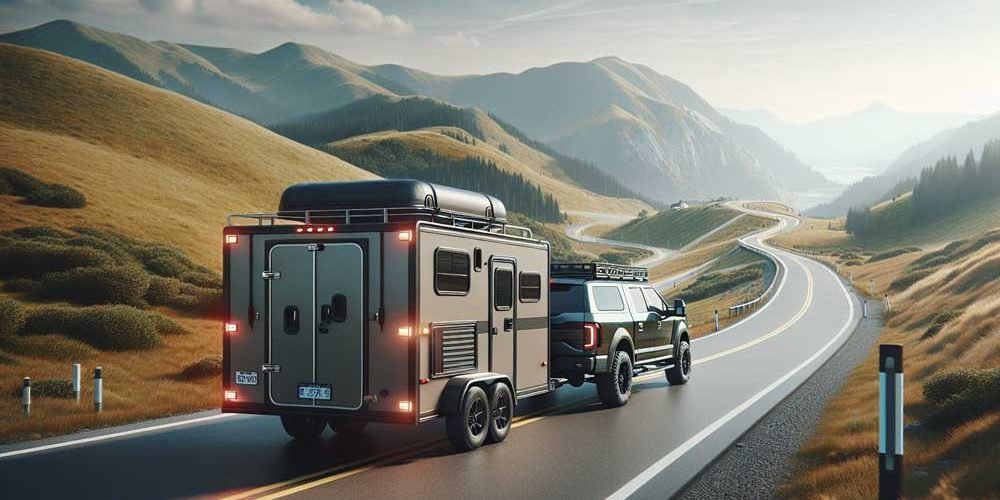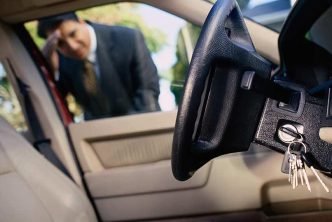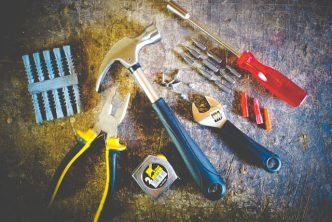Towing a trailer, whether it’s for moving house, hauling gear for a weekend getaway or transporting trailers for emergency services, can significantly change the way your vehicle handles. The added weight and length can influence everything from braking to turning. Here are ten tips to ensure you tow your trailer safely, keeping both yourselves and others on the road secure.
Table of Contents
1. Understand your vehicle and trailer’s capacity
Before hooking up any trailer, it’s paramount to understand the towing capacities of your vehicle. Overloading your trailer can cause significant strain on your vehicle, potentially leading to brake failure or even causing the tires to blow out. Check the owner’s manual for the maximum weight your vehicle can safely tow and ensure the weight of your loaded trailer does not exceed this limit.
2. Ensure the right hitch setup
Not all hitches are created equal. Choosing the right hitch type and making sure it’s properly installed is crucial for safe towing. A hitch that’s too weak for your trailer can fail in transit. Moreover, ensure the hitch is appropriately aligned with your vehicle’s tow hitch receiver to avoid any unnecessary strain on either component.
3. Securely attach the trailer
Connecting the trailer securely to your vehicle is a step you cannot afford to get wrong. Ensure the trailer tongue is properly attached to the hitch ball and that the locking mechanism is closed and pinned. Double-check this connection and consider using a hitch lock for added security.
4. Check your brakes and lights
Before you set off, ensure that the trailer’s brakes (if equipped) are functioning and that all lights are in working order. This includes brake lights, signal lights and tail lights. Properly functioning lights are essential for communication with other drivers, especially during nighttime towing or in poor visibility conditions.
5. Maintain proper tire pressure
Inadequate tire pressure on your vehicle or trailer can lead to tire blowouts and loss of control. Ensure all tires are inflated to the manufacturer’s recommended levels. This will help in maintaining stability while towing and reduce the chances of tire failure.
6. Load the trailer correctly
Incorrectly loaded trailers can cause fishtailing or even flip the trailer. Distribute weight evenly across the trailer floor, placing heavier items near the front (closest to the tow vehicle). This helps in maintaining stability by preventing the trailer from swaying.
7. Practice towing in a safe environment
If you’re new to towing, it’s wise to practice in an empty lot to get a feel for the changes in vehicle handling. Practice making wider turns, stopping gradually and backing up until you’re comfortable with the differences in driving dynamics.
8. Drive conservatively
When towing a trailer, everything takes longer – speeding up, slowing down and turning. Give yourself plenty of room to maneuver and anticipate stops well in advance. Avoid sudden lane changes and actions that could cause the trailer to sway.
9. Regularly inspect the setup during stops
During long trips, make it a routine to inspect your towing setup at each stop. Check the hitch connection, ensure the load hasn’t shifted and verify that all lights and brakes are still functioning correctly. It’s much better to catch a potential issue during one of these checks than on the road.
10. Be mindful of other drivers
Your towing setup not only affects you but also the drivers around you. Be considerate by ensuring your trailer’s movements are predictable, minimizing disruptions to traffic flow and refraining from any potentially dangerous driving decisions. If on a multi-lane road, stay to the right to allow faster traffic to pass safely.
Towing a trailer doesn’t have to be a stressful experience. By following these ten simple tips, you’ll be well on your way to towing safely and confidently, ensuring a smoother ride for everyone involved.





